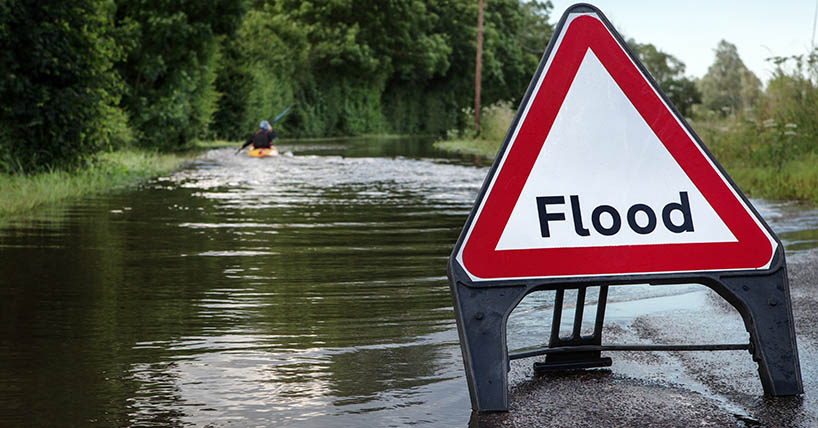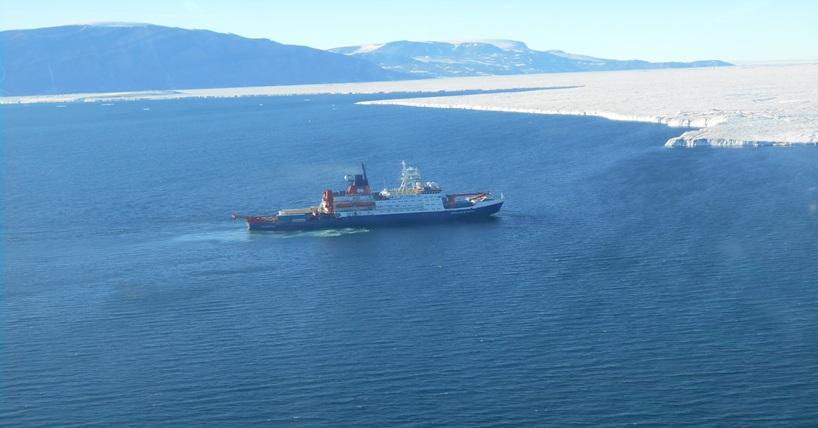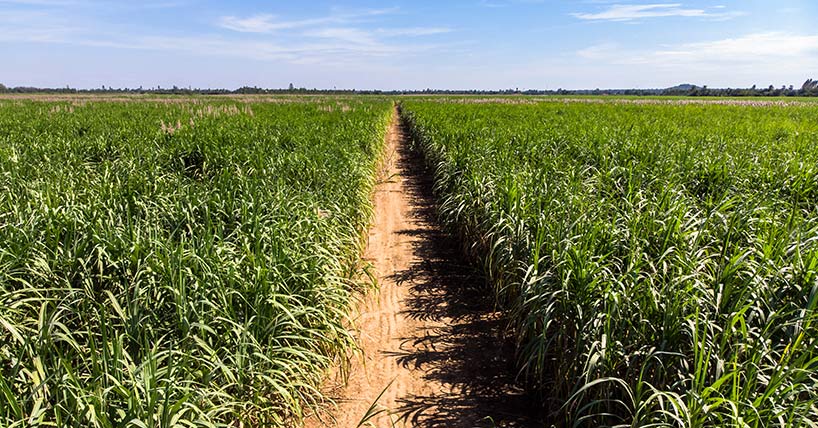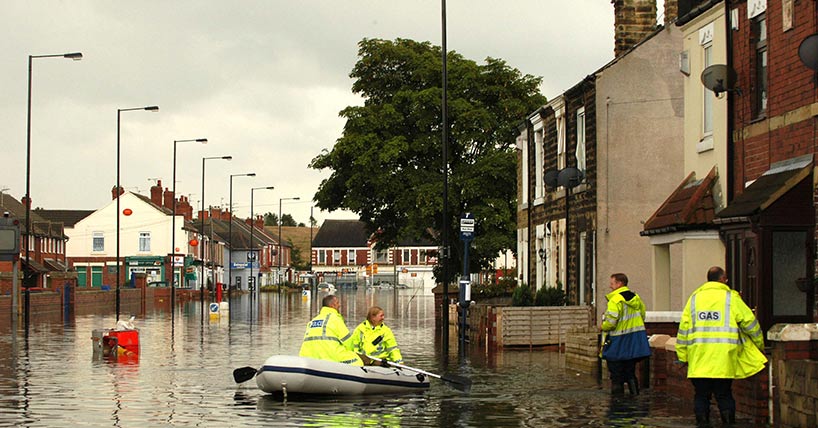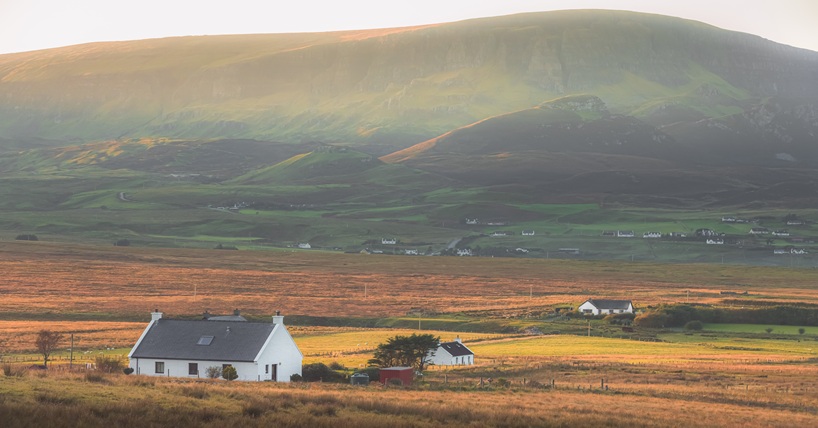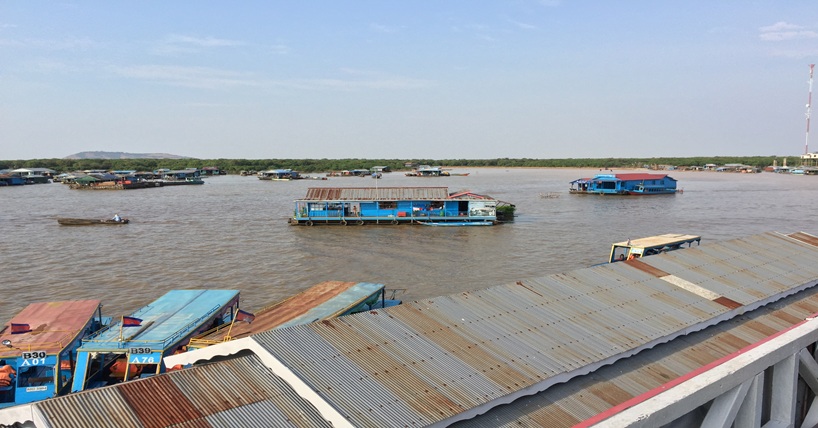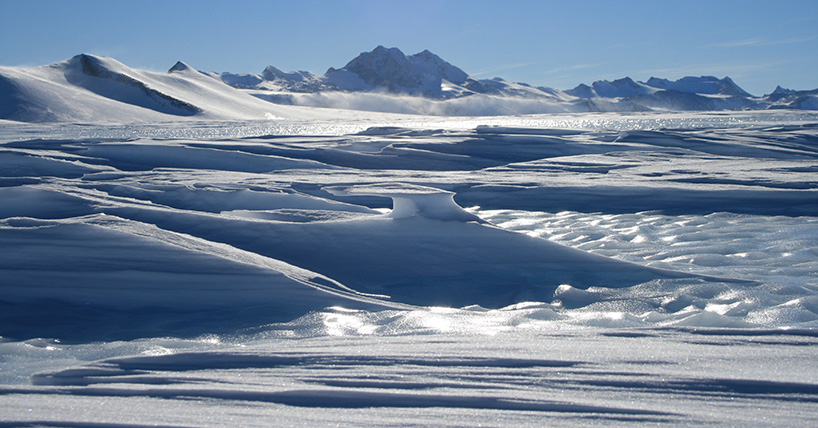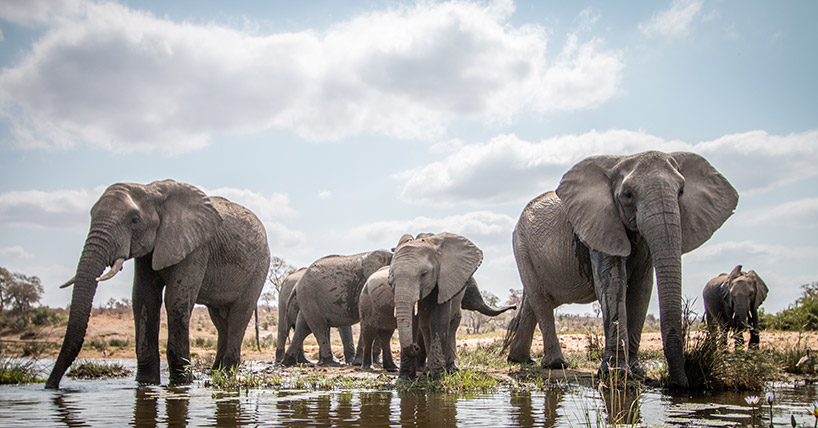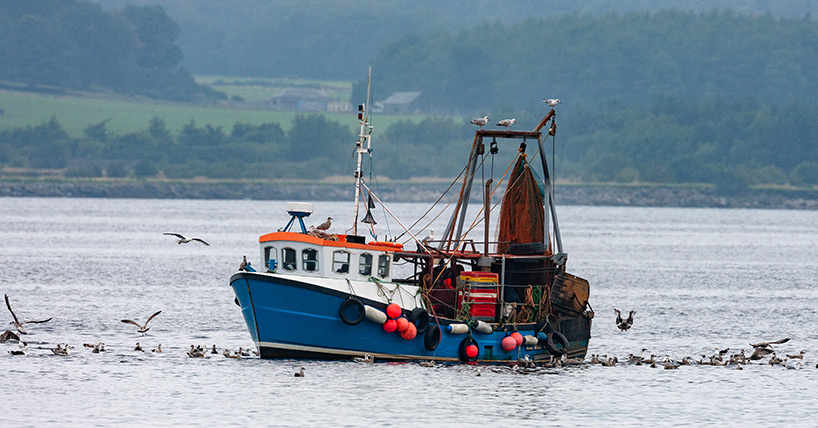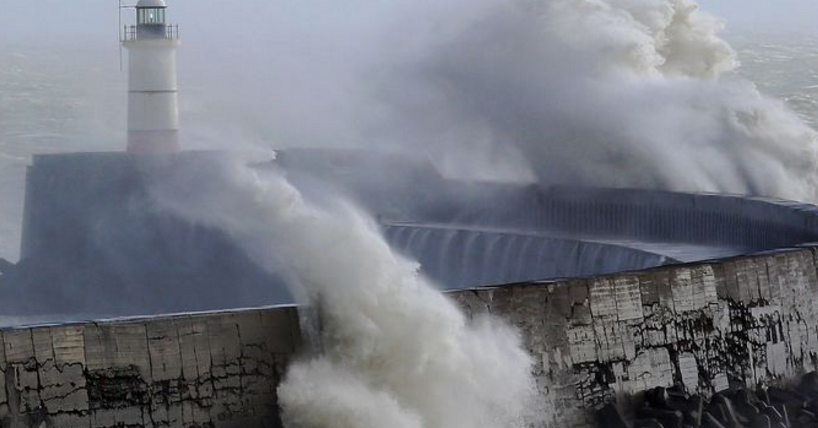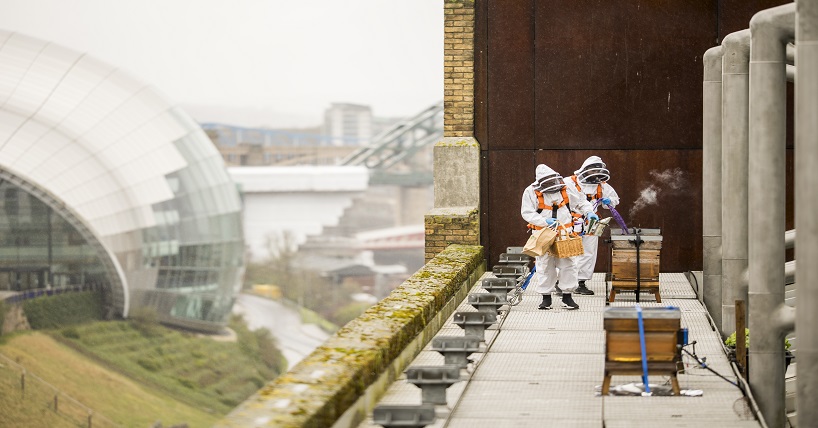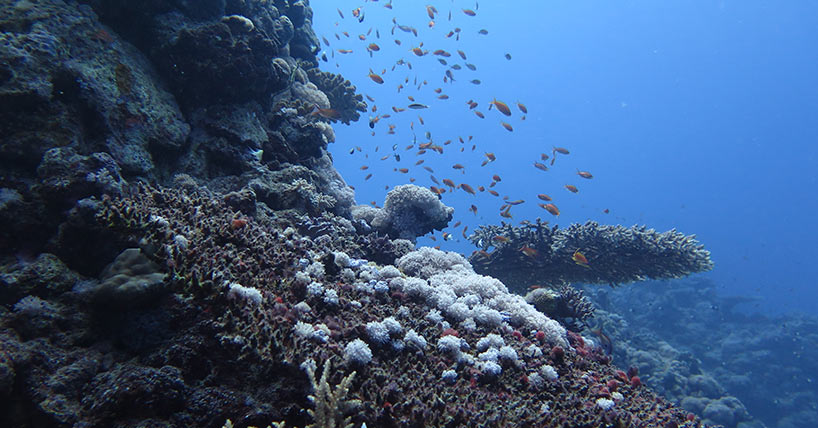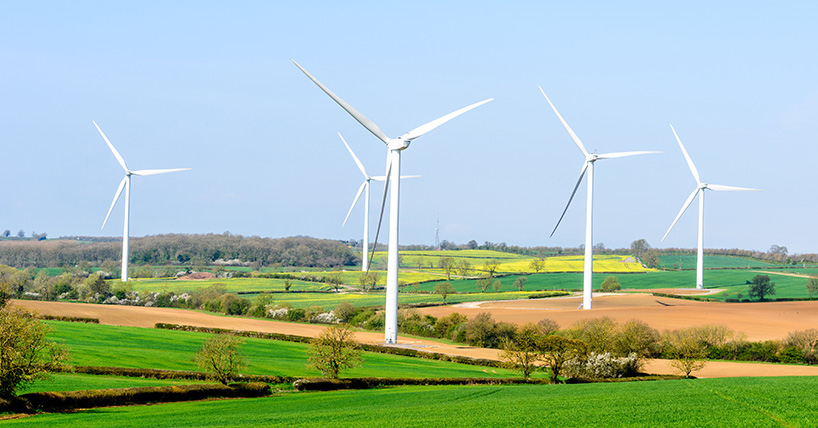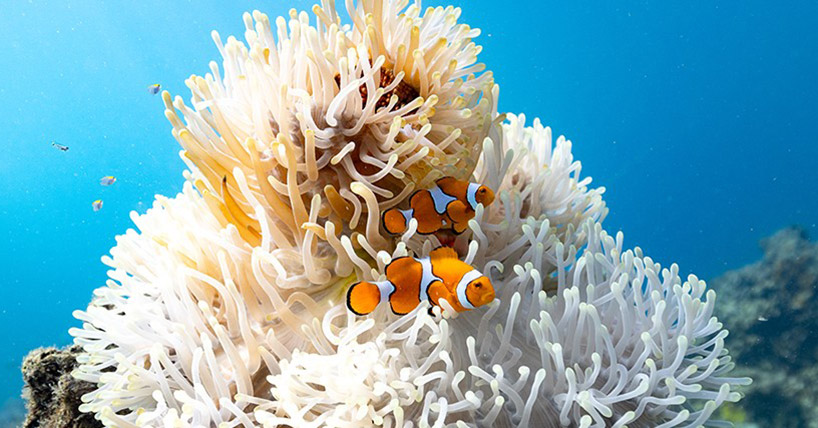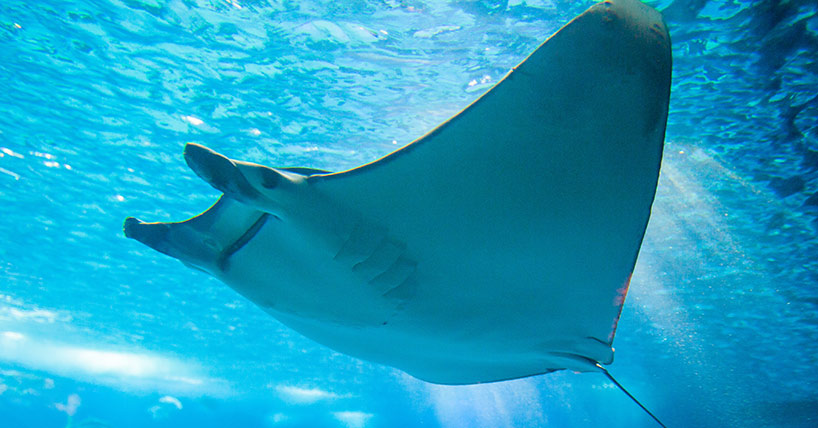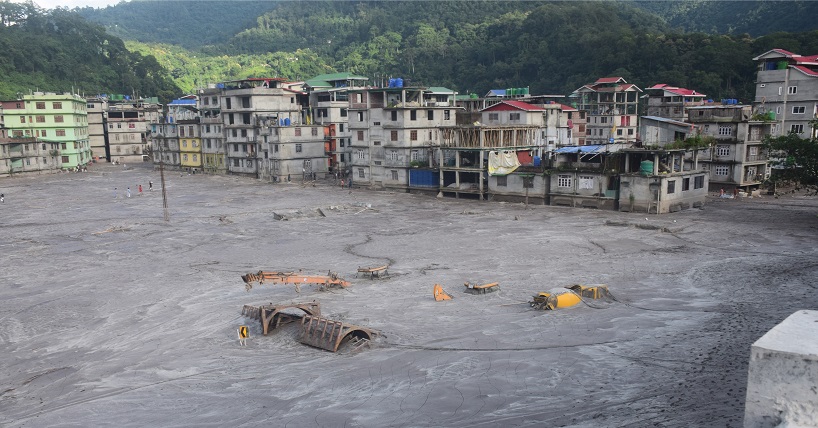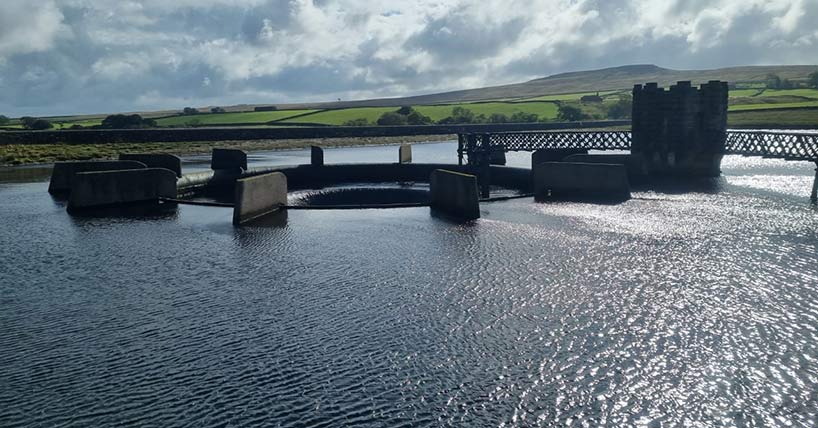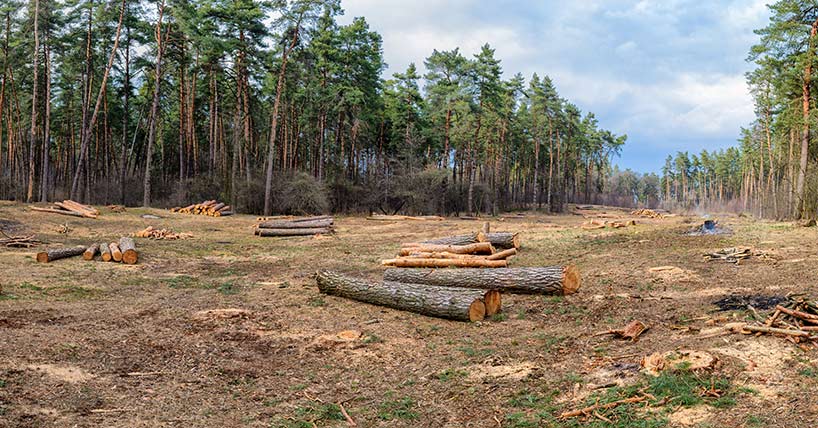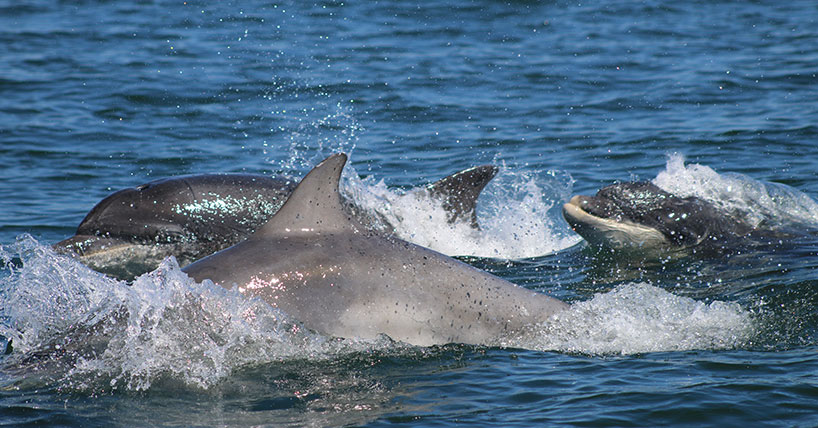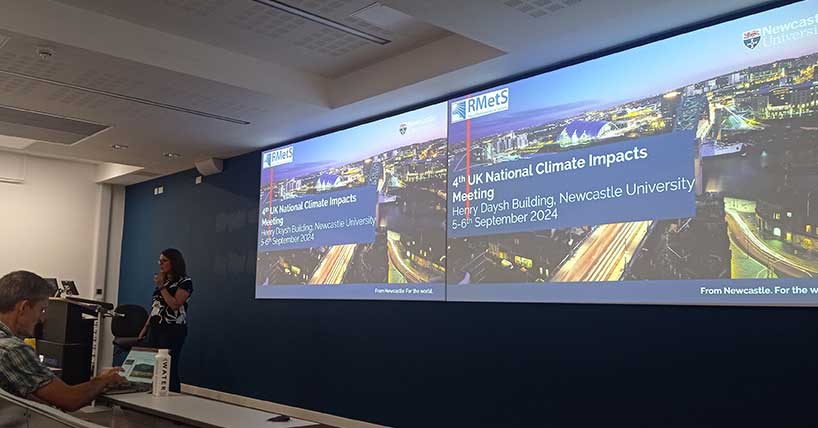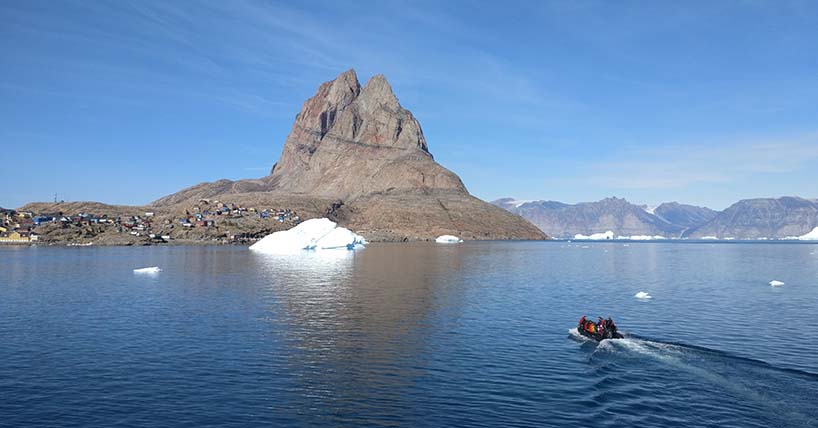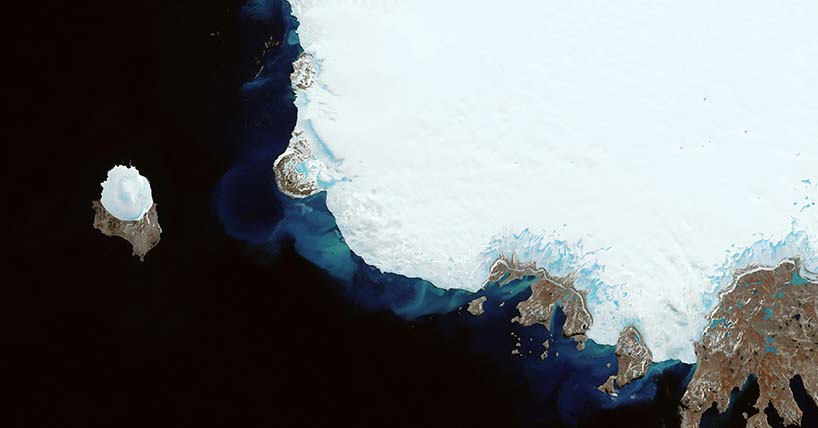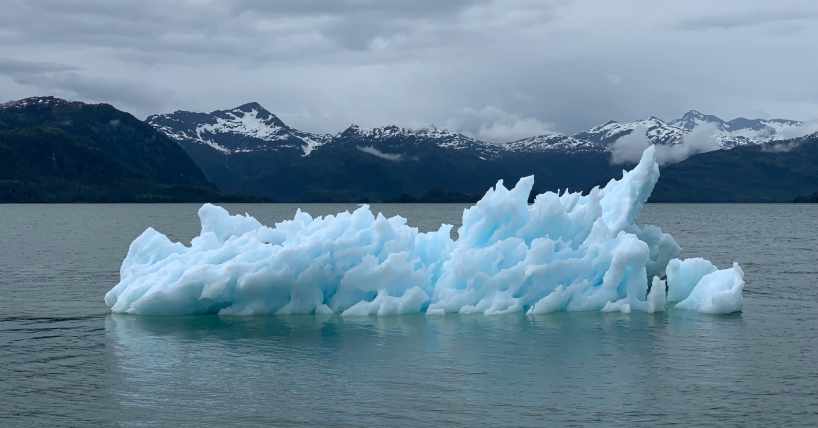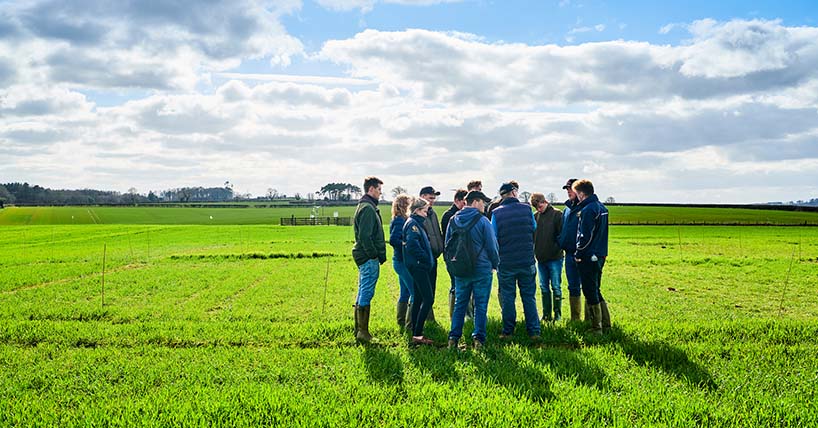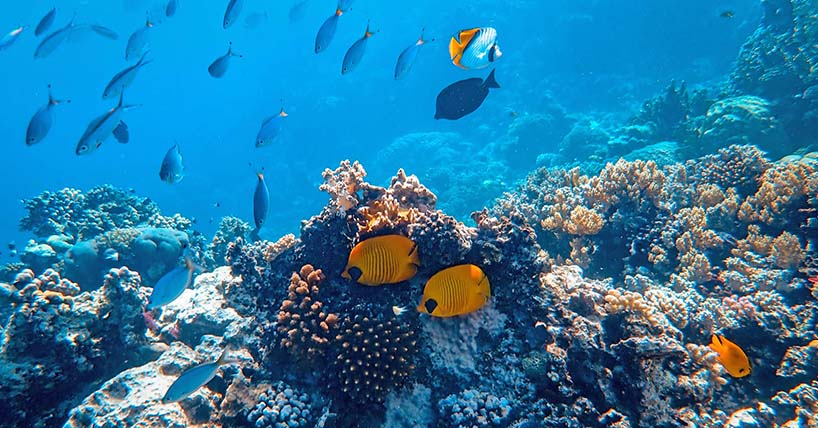News and blog
News coverage and blog posts covering climate and environmental resilience
Latest news
New study identifies warning signs for extreme flash flooding
Climate experts have identified an atmospheric configuration that can release huge volumes of water in a matter of minutes.
Newcastle engineer awarded £3m to help tackle climate crisis
Dr Sharon Velasquez Orta has been awarded a Green Futures Fellowship by the Royal Academy of Engineering.
Warmer ocean currents destabilise ice sheets, driving retreat
New research reveals how ocean warming triggered the large-scale retreat of the Northeast Greenland Ice Stream (NEGIS) - offering vital clues for understanding its modern-day vulnerability.
Exposing the hidden carbon cost of potash imports into Brazil
Brazil’s potash imports carry higher carbon footprints than models predict, Newcastle research finds.
Research into zoonotic disease risks requires a One Health approach
A new evidence brief has highlighted that a One Health approach is needed in research into zoonotic disease risks around the world.
Fossil fuels speed up shifts in Europe’s winter rainfall
New study reveals burning of fossil fuels is accelerating winter rainfall changes in the UK and Europe, almost 25 years sooner than expected.
Newcastle academic helps pave way for Scottish land reform
Research by a Newcastle University academic has helped bring about a more equal approach to the way land is managed in Scotland.
Sand mining reducing the flow of Southeast Asia’s largest lake
A new study co-led by Newcastle University highlights how sand mining is endangering the normal functioning of the largest freshwater lake in Southeast Asia.
Newcastle scientists contribute to UNESCO glacier loss report
Scientists from Newcastle University have contributed to a major new international report highlighting accelerating decline of glaciers and ice sheets and the consequences for people and the planet.
Sustainability analysis reveals UK business performance
Experts from Newcastle University have contributed to a new report assessing how UK business sectors are performing on sustainability and where more action is urgently needed.
Comprehensive update to global biodiversity hotspots project begins
An international consortium involving Newcastle University has announced a major update to the world's biodiversity hotspots.
Supporting forestry to deliver net positive biodiversity impact
A new science-based framework to help the forestry sector achieve nature-positive outcomes has been completed.
UK health leaders unite to protect future of medical research
Newcastle University's Vice-Chancellor has joined prominent figures across the UK health sector committing to urgent action to reverse the 'alarming decline' in clinical academic posts.
Climate change is supercharging Europe’s biggest hail
Warming may lead to less frequent but bigger and more devastating hail storms, new research has shown.
Harnessing space to fight toxic algae blooms
Newcastle University scientists are at the forefront of a UK-wide effort to use space technology to predict and monitor harmful blue-green algae blooms in Lough Neagh.
Climate expert awarded Royal Society Faraday Discovery Fellowship
Professor Hayley Fowler has been awarded a Royal Society Faraday Discovery Fellowship to tackle extreme weather risks.
Newcastle expert chosen as author for next IPCC report
Professor Bethan Davies has been selected as a lead author for the forthcoming Intergovernmental Panel on Climate Change (IPCC) Assessment Report 7.
Comment: Small fishing boats
Writing for The Conversation, Phoebe Lewis, Ainsley Hatt and Dr Sarah Coulthard discuss how the UK is losing its small fishing boats – and the communities they support.
Comment: Storm Floris
Writing for The Conversation, Dr Colin Manning discusses that the weather is rarely this windy in August – which makes it more dangerous.
Comment: Why modern masculinity is a climate issue
Writing for The Conversation, Michael Richardson discusses ecological masculinities and opening up environmental care to young men.
Rethinking ocean oxygen is key to tackling coastal deoxygenation
Marine life may be more resilient to climate stress than previously thought, thanks to shifting oxygen levels in coastal waters.
Remains of ancient river landscapes control East Antarctica ice flow
The remains of landscapes thought to have formed when ancient rivers flowed across East Antarctica have been discovered – and could help predictions of future loss from the ice sheet.
Leading experts to put science and tech at the heart of clean power
Professor Richard Dawson has been appointed to the new Science and Technology Advisory Council.
Blyth community bright 'Sparks’ highlight a path to Net Zero
A community-led art exhibition in Blyth will showcase how marginalised communities envision, and can contribute to, low-carbon planning in the places they live.
Team Newcastle take on Great North Run in aid of our students
This year, over 35 colleagues, graduates and supporters are joining #TeamNewcastle in the world’s biggest and best half-marathon to raise vital funds for our 29,000-strong student community.
Shrinking Nemo: Clownfish survive heatwaves by shrinking
Clownfish have been shown to shrink in order to survive heat stress and avoid social conflict, Newcastle University research reveals.
New map of landscape beneath Antarctica unveiled
The most detailed map yet of the landscape beneath Antarctica's ice sheet has been assembled by a team including scientists from Newcastle University.
Study shows Indian Ocean devil rays at risk of overfishing
Newcastle University experts demonstrate a data-poor approach to assess the sustainability of devil ray catch in Indian Ocean fisheries.
New environmentally-friendly mortar reduces heat loss
A mortar made from recycled plastic and silica aerogel which improves insulation and reduces plastic waste has been developed by Newcastle University researchers.
New research into Bhutan’s glacial flood risk
Newcastle University researchers have been awarded funding to assess the risk facing Bhutan from glacial lake outburst floods (GLOFs).
Research identifies causes of catastrophic flooding
A Newcastle University student has contributed to a major international study which has identified the exact causes and drivers of the catastrophic 2023 Sikkim flood in India.
New centre will support transition to low-carbon living
Researchers at Newcastle University are to play a crucial role in a new centre that will support more people make the transition to low-carbon living.
Calls to curb invasive species spread via untreated water transfer
Experts are warning of the risks of spreading invasive and non-native species when moving large volumes of untreated lake, reservoir and river water.
Logged forests more valuable for conservation than oil palm
New research provides the most comprehensive assessment to date of how logging and conversion to oil palm plantations affect tropical forest ecosystems.
Signature whistles help estimate bottlenose dolphin abundance
Using signature whistles is an effective means for estimating abundance of bottlenose dolphins, new research confirms.
Glaciation expert awarded prestigious Richardson medal
A glaciation expert at Newcastle University has been awarded the prestigious Richardson Medal by the International Glaciological Society (IGS).
Science for Engagement Conference 2025: Highlights and key themes
Written by Micah Thomas and Sheena Davis
Science for Engagement Conference 2025: Co-creating climate resilience
Written by Micah Thomas and Sheena Davis
Newcastle University hosts 4th UK National Climate Impacts Meeting
Written by Dr Colin Manning
Climate Change in the Arctic Through a Geopolitical Lens
Written by Jelaine Gan and Sheena Davis
Treading on thin ice: How studying glaciers can change the climate narrative
Written by Jelaine Gan and Sheena Davis
Adapting to Tomorrow: Geospatial Insights into Building Climate Change Resilience
Written by Jelaine Gan and Sheena Davis
The Intersection of Climate Change and Neglected Tropical Diseases
Written by Jelaine Gan & Sheena Davis
Sustainable Futures: Climate Challenges in Rural Settings
Written by Jelaine Gan and Sheena Davis
Climate assemblies for democratic climate action
Written by Jelaine Gan & Sheena Davis
Speeding up coral evolution to create climate-resilient reefs
Written by Jelaine Gan & Sheena Davis

